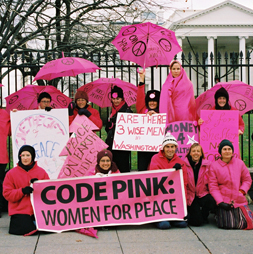- About
- Topics
- Story
- In-Depth
- Picks
- Opinion
- News
- Donate
- Signup for our newsletterOur Editors' Best Picks.Send
Read, Debate: Engage.
| December 10, 2018 | |
|---|---|
| topic: | Peace and Reconciliation |
| tags: | #Balkan, #Kosovo, #Serbia, #NATO, #Vladimir Putin |
| located: | Kosovo, Serbia, Russia, China, Albania |
| by: | Katarina Panić |
Serbia and Bosnia and Herzegovina risk losing a 500-million-Euro market. Their authorities claim under no circumstances will they not apply reciprocal measures, having expected that the international community will force Kosovo to withdraw the damaging decision. Kosovo's measure has been condemned widely. State Department called Kosovo to revoke the decision in order to avoid provocation and calm the tensions. The European Union said Kosovo must immediately revoke the decision, as it violates its membership of the regional free trade area.
Serbian Prime Minister, Ana Brnabic said that Belgrade had filed a request for consultations within the Central European Free Trade Agreement, CEFTA, over the tax increase. The request was filed to the CEFTA Secretariat, the UN General Secretary and the UN Mission in Kosovo, UNMIK.
“Regardless of the negative outcome, now more than ever it’s clear we need a final and comprehensive deal between Kosovo and Serbia to ensure mutual recognition and membership of Kosovo in UN, NATO & EU”, Kosovo’s President Hashim Thaçi tweeted.
Meanwhile, local Albanians decided to burn Serbian products in the streets in order to respond to appeal for a boycott of Serbian products, while hundreds of Kosovo Serbs rallied in northern parts of Kosovo with placards “EU open your eyes”, “We want peace - not new wars” and “Don’t shut us in a ghetto”. Mayors of four Serb-majority municipalities resigned in order to express their protest against blockade on Serbian goods.
“When we introduced the tax increase, we considered that it would be a warning and a suggestion from our international partners, but I think we are now determined to keep the decision in place until Serbia changes its behaviour. This decision is protecting our country from the damaging effects of Serbia towards our country", said the economic advisor to Kosovo Prime Minister Haki Šatri.
Since the half-decade-long UN-led talks failed, the EU-mediated negotiations between Serbia and Kosovo started in Brussels in 2013, a year after the international community ended the period of Supervised Independence. Several agreements have been reached so far, including the one on normalising relations that grants a high degree of autonomy to Serb-majority areas in the north. Yet, the final settlement is not in sight. Kosovo seeks full integration into the international community such as memberships in the EU, UN, and NATO, while Serbia continues to reject Kosovo's independence.
The idea of a land swap between Kosovo and Serbia was first mooted in a discussion held in Alpbach in Austria last August. So far there are no details of how it would work in practice. However, it is known that Kosovo’s Albanians are strongly against a possible exchange of territories. Thousands marched in September in Kosovo’s capital against idea Albanian dominated south of Serbia for Serb populated north of Kosovo.
Both Serbia and Kosovo must normalise relations as a precondition to EU membership. Their officials have said a border correction could be part of the discussions and it could help end the dispute. Anyway, Germany and other EU countries oppose the idea, saying it could provoke for territory revisions in other parts of the Balkans.
Kosovo was the centre of a Serbian Empire during the middle ages, with many important Serb religious sites. Today it is the youngest state among those who reached sovereignty after former Yugoslavia split in the early nineties. Till the end of 19th century, Kosovo was inhabited by Serbs mainly. Today some 92 percent among two million inhabitants are Kosovar Albanians and less than two percent Serbs.
Centuries-long strained relations between Serbs and Albanians have been marked with riots, boycotts, political pressure, increased nationalism, repressive measures, insurgencies, counterinsurgencies, massacres, ethnic cleansing and massive expulsions of residents. In March 1999 three-month NATO bombing forced Serbia to withdraw their military and police forces from Kosovo. The largest US military base in this part of Europe, camp Bondsteel, was built in Kosovo right after the NATO operation and the region fell under the control of the international peacekeeping mission called KFOR.
Behind the visible conflicts, there is another one under a shadow – a silent war between East and West. To simplify, Kosovo has the US and most powerful European countries on its side, while Serbia counts on Russia and China.
Asked if he would seek Russia’s help as Syrian President Bashar al-Assad did, Serbian President Aleksandar Vučić responded he would seek advice but not military help from President Vladimir Putin during his visit to Moscow.
“I would not like to see great global conflicts take part in our territory,” Vučić told media in Serbia.
By copying the embed code below, you agree to adhere to our republishing guidelines.

